It is important that you are fully aware and ready to deal with these changes by this date, as a failure to do so could result in delays or returns of your goods and a poor delivery experience.
In this article we discuss the changes affecting non-EU businesses importing goods for EU consumers and how you can prepare.
What is changing from 1 July?
The extent of the changes depends on where the good are located at the time of sale. There are different rules for goods which are situated outside the EU at the time of sale (eg GB) and those which are in the EU at the time of sale (such as an EU warehouse or fulfilment centre). This article focuses on the situation where goods are located outside the EU at the time of sale.
As of 1 July 2021, items imported to the EU with a value of €22 or less will no longer be exempt from VAT.
This means that all goods sent directly from GB to consumers in the EU, both via online marketplaces and sales made directly, will be subject to VAT in the EU and may have additional customs or reporting requirements.
Currently
- Goods of less than €22 are not subject to import VAT in most member states and do not require customs clearance.
- Goods between €22 and €150 are subject to import VAT in the member state of clearance, require formal customs clearance and incur associated fees.
- Goods of more than €150 are subject to import VAT and potentially customs duties. They require formal customs clearance and incur associated fees.
From 1 July 2021
- Goods of up to €150 can either be subject to import VAT as before with formal clearance and customs clearance fees or subject to VAT in the customer’s country using the import One Stop Shop (iOSS) scheme.
- Goods of more than €150 are subject to import VAT and potentially customs duties. They require formal customs clearance and incur associated fees.
What happens if I don’t act?
If you don’t have a solution in place by 1 July 2021, your items will be delivered by Delivery Duties Unpaid (DDU). This means that customers may have to pay import VAT and a handling fee in the receiving country before they can receive their parcel.
This could lead to delays, returns and a poor delivery experience. Furthermore, some customers might refuse delivery altogether, rather than pay additional charges.
In summary
There is a lot happening in this area at the moment and we will update clients as and when we hear further news.
However, it is very important that UK businesses importing to customers in the EU have considered how they will import goods to the EU after 1st July so that their supply chain and reputation is not impacted.
Read on for the options available to businesses to allow them to meet the EU VAT changes from 1 July 2021.
What are my options?
1. Sales via online marketplaces
Firstly, if a UK business sells goods with a consignment value of less €150 to consumers in the EU via an online marketplace, then the marketplace will be responsible for collecting the relevant VAT based on the customer’s location and pay this VAT to the relevant EU tax authority.
In this case, the seller just needs to ensure that the price shown on the marketplace includes VAT that will be paid to the tax authorities on its behalf and has no further registration or reporting obligations in the EU.
2. Direct sales
For direct sales, there are two main options:
- UK businesses sending consignments with a value of less than €150 may decide to continue with the current system whereby goods are sent to the EU customer by a postal/ courier service under DDP terms (Delivered Duty Paid). In these cases, the seller pays import VAT and any duties on behalf of the EU customer via the postal/ courier service. Again, the seller should include the potential cost of import VAT and duties in the price payable by the customer. This option may be attractive to businesses making only infrequent sales to EU customers or whose consignment values fluctuate between being less than or greater than €150.
- Alternatively, for consignments less than €150, a UK business can opt to defer payment of the import VAT in the country of clearance and instead account for VAT at the point of sale based on the customer’s location using iOSS. This involves a special iOSS registration in a member state of choice and the submission of a quarterly return covering all relevant sales – declaring the VAT at the rate appropriate in the customer’s member state. Goods sent showing an iOSS registration number should clear customs quicker and won’t incur as high handling costs. iOSS also allows business to determine their VAT liability based on their customer’s location rather than the place of import. This may be particularly important where goods may be subject to reduced rate of VAT in some member states.
Is iOSS ready?
Whilst the iOSS may be a preferable option for UK businesses and should potentially reduce delays in the delivery of packages from the UK, it may not be suitable to everyone at this moment in time.
Whilst many member states have launched pre-registration facilities for iOSS, a non-EU business is not able to register itself at this time and instead needs to appoint an intermediary to act on its behalf (more on that below). This is despite the trade agreement indicating that there would be mutual assistance between the UK and EU such that UK businesses could apply without the need to appoint a third party. Clearly, the cost of appointing a third party to act in this capacity may negate the costs saved by using the scheme.
We understand that there may be clarity later in the month, but in the meantime have been suggesting that businesses carry on selling goods to EU customers on a DDP basis (courier pays on seller’s behalf). It may even be that this is the better solution all round anyway.
3. Using an intermediary
If you do not wish to wait for clarification on if and when you can register for the iOSS and you aren’t able to operate on a DDP basis there may be an alternative solution by using an intermediary company.
Your intermediary will share the responsibilities of dealing with the iOSS regime i.e submissions of returns and VAT payments. Intermediaries are required to be EU-resident, in effect, a type of VAT agent.
4. An alternative solution
We previously noted the Post Office were offering a solution whereby sellers can use the Post Office’s iOSS (known as the Royal Mail Postal Delivered Duties Paid (PDDP) Service). Using this solution means that the Post Office becomes a deemed reseller and can handle the submission of returns and VAT payments via their new portal. Further details can be found on the Royal Mail website here.
An update on this method (18 June 2021)
The Post Office have amended their website which now suggests that it is not possible to send goods under the previous DDP route for parcels less than €150. Furthermore, we have heard today that a number of courier firms (FEDEX, DPD and DHL) are not facilitating DDP sales of parcels less than €150 from 1 July despite iOSS being optional.
It is not clear at this stage why this is happening, as it seems to be a backdoor route to enforcing iOSS when it is supposed to be optional. It is very disappointing with so little time left but it may be that the mutual assistance position with the EU may be resolved before the end of the month. We are contacting clients who we have have been discussing this with and will update this article when we have further information.

With a career in VAT spanning over 20 years, Nicola advises businesses of all sizes; from start-ups to major international organisations.


